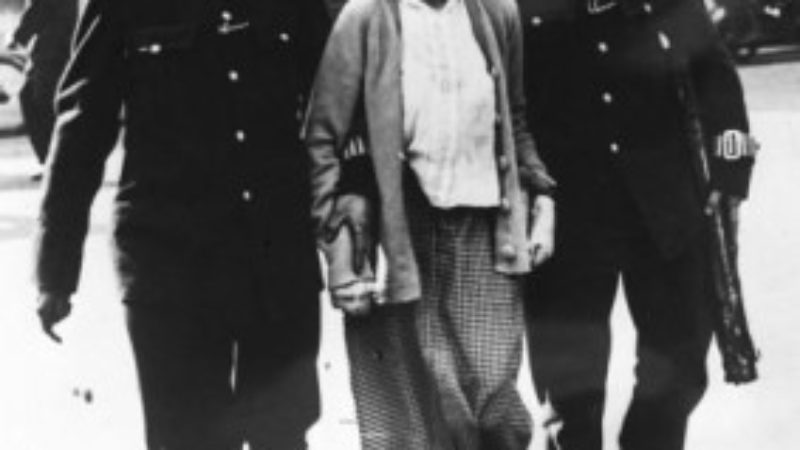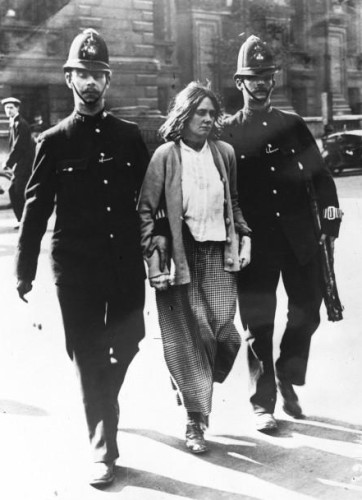
Trying to affect lasting change in Westminster can feel like the political equivalent of Groundhog Day. After citing statistics and offering anecdotal evidence to convince people of your case, you start to think you’ve made progress. That is until you find yourself having the same argument you had a year ago and you realise, the debate has begun all over again.

At times, this is what the movement for gender equality can feel like. Of course, I’m being unfair, many women (and some men) have fought incredibly hard and made huge gains to put the right the gender imbalance in society. But the recent dispute in Cynon Valley – where the local party is in open revolt against the NEC’s decision to use an all-women shortlist (AWS) to replace outgoing MP Ann Clwyd – is a reminder that there’s still a long way to go.
Thankfully, the central party have said they won’t overturn their decision, so it looks like they’ll still use an AWS for the selection process. I’m not breathing a sign of relief because I’m in favour of Labour HQ overriding local members’ wishes – usually I’d call for the opposite; devolving significant powers to local people. In this instance though, Labour are right to enforce the decision because when it comes to the Commons, without AWS, most women wouldn’t get a look in.
The counter-argument to using AWS, which we’ve heard from constituents in Cynon Valley, is that choosing a parliamentary candidate should just be about considering who’s the best person for the job. This logic is fundamentally flawed because its advocates don’t recognise that we live in a system that encourages us to see competence as synonymous with conventional masculinity. And so women are always at a disadvantage.
There’s no shortage of evidence to support this. Britain’s record of female representation in Parliament is abysmal – between 1918 and 2013 only 8% of our MPs have been women. For those who think gender discrimination (including the subconscious kind) is an issue consigned to the past, stats for the upcoming election tell a different story. In February in it emerged that out of 106 of Labour’s parliamentary candidates in key target seats, 57 of the candidates are women. A figure to celebrate, surely. But of these an overwhelming 51 were selected from all-women shortlists, meaning that in the 55 places where open shortlists were used, a mere 6 female candidates triumphed, in comparison to 49 men.
Of course, a woman may not have run in each of these places but if that were the case, you’d have to ask why.
Put in terms of percentages, in these integral seats only 11% of candidates drawn from open selection were women, a figure worryingly close to the 8% of women who’ve made it into Parliament over the past century. The numbers show that if left unchecked little will change in terms of gender representation: we need AWS if we’re ever going to get the right balance in Parliament.
Yet, AWS can’t be where the conversation ends. On their own, these shortlists won’t unpick a structure that favours men (in particular men who conform to the stereotypical idea of masculinity) over women.
That’s because promoting women to positions of power doesn’t make it easier for them to navigate through a masculinised (patriarchal, if you will) system. Have we already forgotten when David Cameron told Labour MP Angela Eagle to “calm down dear” or revelations sparked off by the Lord Rennard affair, in which Bridget Harris, former advisor to Nick Clegg, spoke of the “intellectual sexist culture and endemic sleazy culture of Westminster”. What’s more, the Fawcett Society recently found that across the country women are being driven out of local government due to sexism.
The sad reality is that if women get into positions of power they’re often shouted down or forced out by men, unless they conform to a masculine ideal (see: Margaret Thatcher). And it’s worth noting that this also disadvantages men who don’t conform to this male stereotype. To achieve true gender equality, Labour needs to argue for a fundamental overhaul of the way we do politics – one that challenges the notion that conventional masculinity is a sign of success.
While the Labour Party is right to champion AWS, and they’d also be right to do the same with all-minority ethnic shortlists, they can’t pat themselves on the back and think the job is done. If they’re to be the party for the people – regardless of gender, race or class – Labour must start acting on the thoughts and feelings of women from all backgrounds who think that party politics isn’t an effective means by which to change the world for the better. Otherwise, despite making significant progress in terms of the number of women in Parliament, they’ll quickly find that the overtly masculinised, sexist world of British politics hasn’t changed all that much.




More from LabourList
‘Africa must be the UK’s top foreign policy priority in 2026’
‘Standing up to power is not optional when politically uncomfortable. It’s essential’
Venezuela: ‘Sovereignty, the law and the UK government response are all being confused’